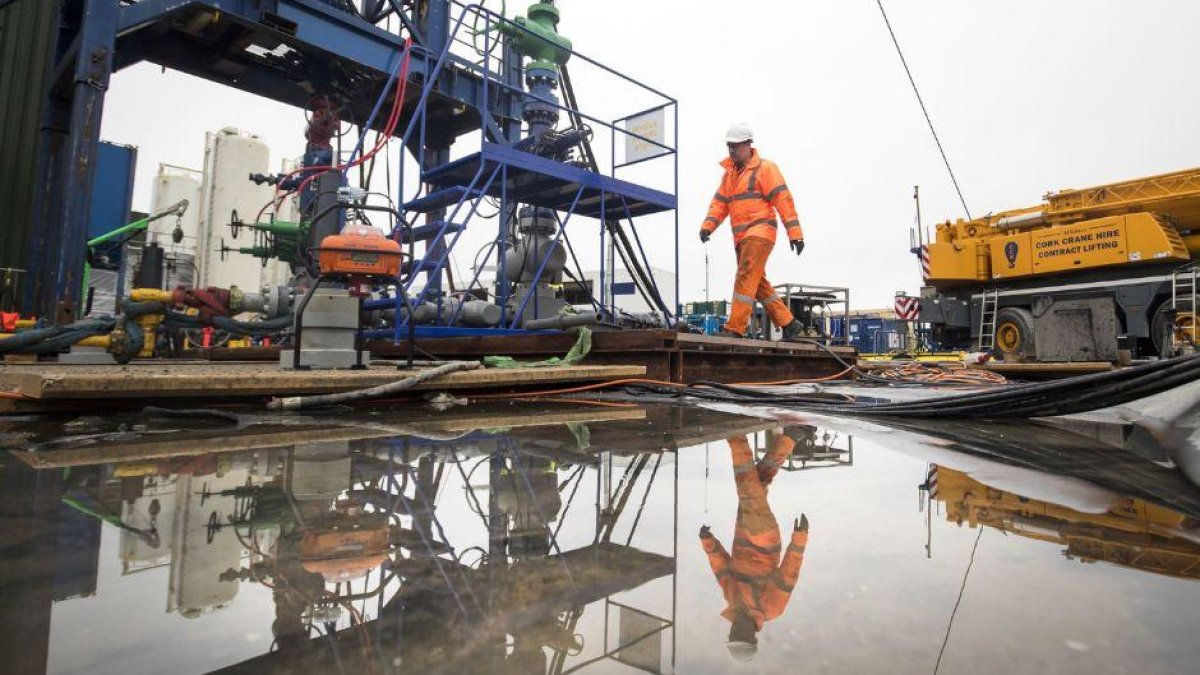House Republicans launch 'energy week' with two pieces of legislation in favor of fracking
Although President Joe Biden did not explicitly say he would ban the practice, he did say he wanted to stop new drilling on public lands and waters.

Cordon Press
House Republicans kicked off 'energy week' on Wednesday afternoon by passing two pieces of legislation in favor of the drilling and extraction practice known as fracking. Although it is unlikely to pass in the Senate and even less likely that Joe Biden will sign it, the texts outline the GOP's energy agenda ahead of the 2024 elections.
The first of the texts, HR 1121, or the Protecting American Energy Production Act, passed with 229 votes in favor and 188 against. 15 Democrats joined Republicans in the vote. This bill would prohibit the president from declaring any type of pause on fracking.
"I'm proud to have protected America's ability to harvest our vast natural resources and convert them to power from Joe Biden's hopes of 'no more drilling,'" said the House Energy Subcommittee Chairman Jeff Duncan (R-SC) and author of the legislation.
"H.R. 1121 is a commonsense measure that ensures no President has the unilateral power to shut down fracking. This legislation also makes it clear that no President should have the power to stop any of our domestic energy production—that power should reside with Congress and the States," he added.
Congresswoman Lauren Boebert (R-CO) championed the second legislation, H.R. 6009, the Restoring American Energy Dominance Act. This bill undoes the Biden Administration's action that increased drilling fees on public lands. It was approved with 216 votes in favor (four Democrats in the majority) and 200 against.
"The Biden administration has waged an all-out war on American energy production, issuing reckless executive orders and ill-conceived mandates that have handicapped domestic energy production and created record-high gas prices. The Restoring American Energy Dominance Act will keep Biden administration radicals from further driving up energy costs for millions of American families and take a stand against Biden's war on American energy," said the congresswoman.
What is fracking?
Hydraulic fracturing, commonly known as fracking, is an extraction method in which a fluid composed of water, sand and chemical additives is injected deep into the ground to release resources such as oil, natural gas, geothermal energy and even trapped water. Such extraction is carried out in shale rock (earth crushed over time) on average 7,500 feet below the surface.
Once the extraction is completed, the company restores the land with soil and vegetation, leaving only the well's mouth and the collection tanks visible.
"Hydraulic fracturing, better known as fracking, is safe. Studies from the U.S. Environmental Protection Agency, the U.S. Geological Survey, and many academic institutions have all concluded that fracking poses no threat to groundwater supplies. The move in energy markets from coal to natural gas has improved air quality and reduced carbon dioxide emissions", said Nicolas Loris, an energy economist, in an article for the Heritage Foundation.
"More energy while minimizing the environmental impact"
Although its critics claim that the practice is very harmful to the environment, this claim turns out to be debatable.
Voz Media spoke with Juan Ignacio Darcy, a petroleum engineer, who argued that hydraulic fracturing is the "north of the oil industry."
"Although many might think it contaminates groundwater, this is not the case since the water tables containing drinking water are isolated. It is also usually a common thought that it contaminates large volumes of water, but this is not the case if we compare it, for example, with nuclear energy or coal. In this way, more energy can be produced than with other fuels while using less water. Without a doubt, the use of hydraulic fractures is the north of the oil industry, which year after year is more committed to caring for the environment, thus allowing more energy to be generated while minimizing the environmental impact," he explained.
For more than 70 years, the practice has increased access to proven oil and natural gas reserves in Alabama, Arkansas, Colorado, Illinois, Louisiana, Michigan, New York, North Dakota, Oklahoma, Pennsylvania, Texas and Wyoming.

























